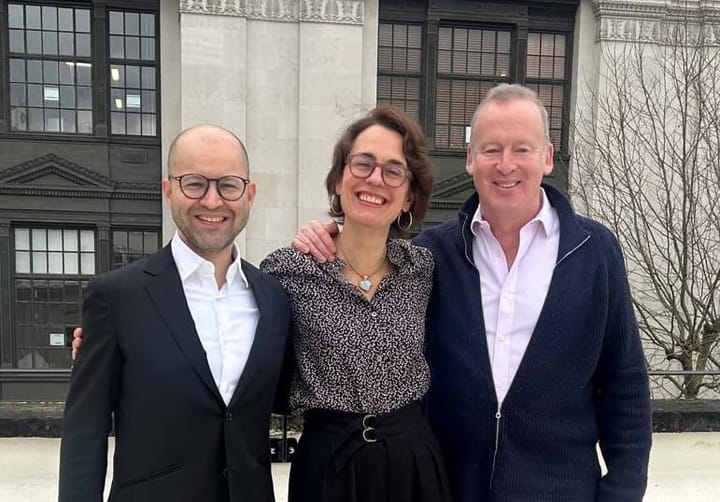Founder Pre-Incorporation agreement could be worth millions (and costs zero)
Founder disputes and incoherent teams remain frequent sources of failure. In addition, every second due diligence within the first capital round identifies legal risks related to ownership of IP rights. Could all these issues be easily avoided?

Founders are super focused on the product, market, fundraising and growth. When they start working on a project, potentially breaking up and IP rights ownership are the least of their concerns. Reality is different, though. Founder disputes and incoherent teams remain frequent sources of failure. In addition, due diligence within the first capital round often identifies legal risks related to ownership of IP rights. Could all these issues be easily avoided?
Projects are not kicked off in offices
Lawyers do not understand how companies are built, and legislation reflects that. In an ideal world, founders would have discussed their project idea in detail, agreed on the roles and responsibilities, negotiated a shareholder agreement, incorporated a company, get advice from accounting, tax, legal etc. But unfortunately, the world is not ideal, and this is not how companies are built.
Companies do not start with someone saying, "Let's start a company". They begin with ideas conceived while having drinks with friends, using an annoying product or service, failing to find a product or service you require, joining a hackathon or a workshop, working etc. Companies start as an idea of an individual or a group. People brainstorm about it, and eventually, it turns into a project. That's the stage when the initiators (or founders to be) start researching everything related to the idea, such as how big the problem is, how good the solution is, what is the size of the market, what would be a possible price for it, and what technology, if at all, does one need to build it.
At that stage, the founders are thinking deeply about the project and potentially creating solutions, accumulating a lot of knowledge, but are still far away from incorporation, shareholders agreements etc. However, by this stage, their activities have triggered numerous legal consequences, which a typical founder is unaware of.

The problem
The work of early initiators (team members), founder departures and IP ownership are connected closer than one would think. By the time when the founders decide to incorporate a company, a lot of IP rights have been created already. However, those IP rights have not been, by default, assigned to the newly incorporated Company, which means that the Company does not own the IP, which remains owned by the individuals. This gets even more complicated in scenarios where specific individuals involved in the early-stage activities of the project decide to leave - dropouts. Some choose not to join the company incorporation, and some join the Company but want to leave soon afterwards. The reasons for their decision vary.
None of this is a problem until the dropouts read on TechCrunch that the project raised (tens of) millions of capital. Then they suddenly remember their gigantic contribution and start seeking royalties, shares, damages etc. That's why we, lawyers, annoy you in due diligence by asking questions like who participated in the project, who left, have you signed IP assignment agreements etc. If we are not confident that the IP is nicely boxed in your Company, we raise a yellow/orange/red flag, and your favourite VC investor panics.
The let's get married conversation

Early project participants, who typically, but not necessarily, turn into founders, should discuss what they are doing, what their goals and personal motivations are, and express any concerns they might have. Ideally, they should agree on a pre-incorporation founder agreement, which serves a similar purpose as a prenuptial agreement in case of marriage 🤣. After all, starting a company together is some kind of business marriage.
These are the relevant elements to be discussed:
- allocation of the shares in the Company among the founders (typically even allocation),
- vesting of founder shares,
- transfer of the IP rights to the Company,
- confidentiality.
Two elements are essential. The first is the assignment of IP rights to the Company. By having all the early participants sign this assignment, you can be sure that all the IP rights will end up being owned by the Company. This is important so that the Company can develop and sell the solution and that you can raise capital. Investors will not wish to invest if the team and the IP rights are not neatly boxed in the Company.
Secondly, the vesting of founder shares is vital for amicable founder departures, reducing the risks of the project failing. The departure of one of the founders from the Company is not necessarily related to a dispute between the founders. Health, personal, and other reasons can lead to founders wishing to leave their Companies. However, if the rules of departure are not defined, an otherwise amicable move can turn into a dispute. Share vesting means that the founders retain all the shares only if they spent a certain amount of time actively working for the Company. They keep proportionally fewer shares if they do not devote the entire planned time to the Company. Vesting enables predictability, balance and fairness to all the founders, those who remain in the Company, and those, who leave earlier.
The founders' toilet paper agreement
Indeed, we recommend that you sign a founder pre-incorporation agreement. So when two, three or more of you start working on an idea, research, think about monetisation, funding, incorporating a company, developing an MVP or any other preparatory activities - you should sign a founder pre-incorporation agreement.
Signing such an agreement will take a little of your time and could save you millions. It's straightforward to get it done:
- subscribe to our blog, and you can get a draft free of charge (below),
- look at the elements listed above, and draft it yourself "on toilet paper" while having drinks with your co-founders,
- get in touch if you believe your case is a peculiar one.




